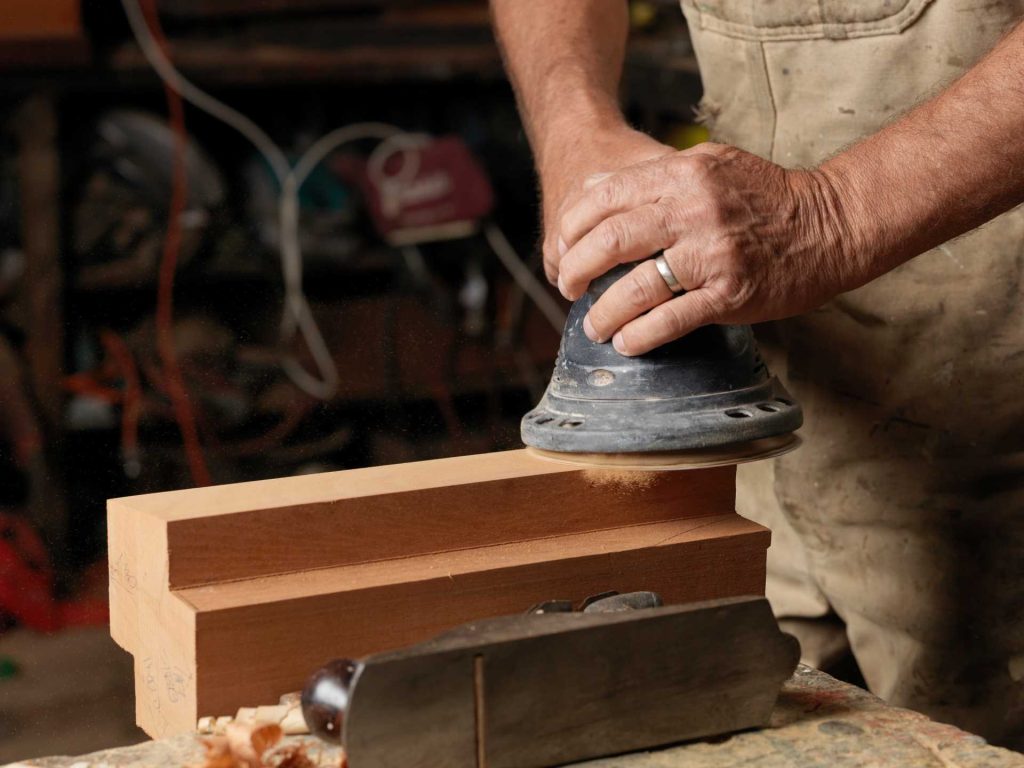Looking to get into sanding but don’t know where to begin? Our sanding for beginners guide is here to help you become comfortable with the craft. Whether you are looking to sand down some rough edges or work on an old piece of furniture, our sanding guide will give you the necessary information needed to take the first steps in your sanding journey, whether you are looking to take up sanding regularly or treat it as a hobby.
Sanding is used to even out imperfect surfaces, ensuring the surface of an object or wall remains consistently smooth. Alternatively, sanding can also be used to roughen surfaces so that other materials can adhere to the sanded surface more easily.
On the hunt for sanding equipment or a welcoming sanding guide to help you with your new project? Come into one of our 5 BetaBoard locations to browse our extensive range of building supplies Brisbane builders and DIYers rely on. You can also contact us online so we can assist you with any queries you have.

Useful Tips for Sanding for Beginners
Pick the Right Equipment for the Job
Any sanding guide will tell you that the most important part of any job is being properly prepared. Sandpaper is suitable for most sanding jobs as it remains a reliable tool that can be used for polishing all kinds of wood. You just need to select the right grit for the job as lower grits are suitable for smoothing out rough surfaces while higher levels are used for removing scratches and sanding between coats of finish. Sanding blocks are also a big help for flat surfaces.
You can also invest in a power sander, but that is usually reserved for more complicated jobs that someone more advanced in sanding would tackle. At BetaBoard we have a range of sanding supplies available to help you with all your sanding needs.
Always Staff Safe
The key to doing any job properly is to do it safely, taking the right precautions to ensure both you and your environment remain protected while sanding. Gloves should always be worn when sanding to protect yourself from cuts, while dust masks will also minimize harmful inhalation. Sanding objects that have been painted can cause toxic particles to be released into the air, so wearing proper masking equipment is a must. Goggles should also be worn to protect your eyes from these same particles.
Clamp Your Project in Place
When sanding something you don’t want to deal with the frustration of the object you are working on moving around as you sand it. That’s why it is important to clamp your project, so it remains in place while you sand it, allowing you to consistently work on it while not having to worry about constantly readjusting your workspace. This also lessens the risk of your project falling off your workspace, potentially causing damage to it or anything it might come into contact with.
Keep a Clean Work Area
As with most hobbies and professions, keeping your workspace tidy and in good condition is key to accomplishing quality work with minimal distractions when it comes to sanding for beginners. Before and after a sanding job, ensure your work area is clear of dust and tools that will not be in use. A vacuum cleaner will become your best friend as it is the easiest way to clean up the excess dust that will accumulate in your workspace. This mitigates the risk of the wastage from your old job interfering with your new one. When you are finished sanding, give your project a good wipe with a damp cloth to clean it up and remove any dust that might still be stuck to the object.
Choose BetaBoard for Your Projects
Have a new sanding project at your home and want to do it yourself? Find your nearest BetaBoard location from one of our 5 stores and our friendly staff will help you with all your DIY needs. If you would rather chat online about a sanding guide, fill out our online form with the details of your project and we will get back to you as soon as possible with our expert advice.














